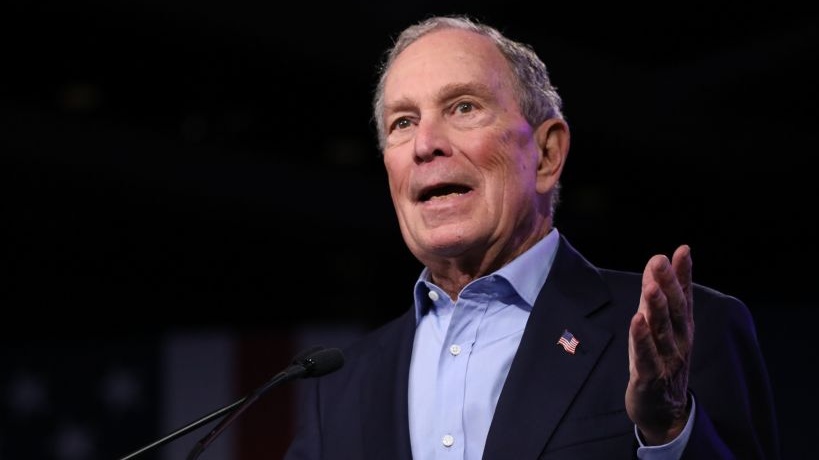Michael R. Bloomberg, who led New York City's controversial stop-and-frisk policy during his tenure as the city's mayor, is stepping up his philanthropic efforts to assist Black Americans in the midst of unprecedented times.
According to the New York Times, the billionaire is giving $100 million to four historically Black medical schools as part of his Greenwood Initiative, aiming to reduce the financial load of aspiring medical professionals and to improve the health and wealth of Black Americans.
The four institutions who will be the beneficiaries of the donation include Charles R. Drew University of Science and Medicine, in Los Angeles; Howard University College of Medicine, in Washington; Meharry Medical College, in Nashville and Morehouse School of Medicine, in Atlanta.
“If the goal of the portfolio is to create intergenerational wealth, we have to think about the mortality and the life span of the Black community,” Garnesha Ezediaro, program lead for the Greenwood Initiative, told The New York Times.
Particularly during a time where the pandemic is disproportionately hampering Black Americans, Bloomberg believes the initiative is imperative.
“The data is clear: Black patients over all have better outcomes when they get treatment from Black doctors,” Bloomberg told The Times. “By increasing the number of Black doctors, we hope the gift will help to save more Black lives and reduce the health problems that limit economic opportunity in Black communities.”
Dr. Valerie Montgomery Rice, the president and dean of Morehouse School of Medicine, said medical students are carrying a debt of about $285,000.
“What we will have the opportunity to do with this reward is relieve the stress of those students,” she said.
The grant, which is rewarded to students graduating between 2021 and 2024, does not require them to select a specific specialty.
“These funds are really going to shout to the world that historically Black medical schools are not just there, but that they’re there in a big, meaningful way,” David M. Carlisle, the president and chief executive of Charles R. Drew University, said.
Bloomberg has been striving to uplift Black communities after his unsuccessful bid for presidency. The billionaire reached out to the schools last month and asked how he can help improve Black communities’ wealth. Dr. Wayne Frederick, the president of Howard University, said the answer is to increase the number of Black doctors.
According to The New York Times, Bloomberg apologized for his controversial stop-and-frisk policy during his presidential campaign, acknowledging the devastating effects of randomly searching Black and Latino people on the streets.
“Over time, I’ve come to understand something that I long struggled to admit to myself: I got something important wrong,” the former mayor said. “I got something important really wrong. I didn’t understand back then the full impact that stops were having on the Black and Latino communities. I was totally focused on saving lives, but as we know, good intentions aren’t good enough.”
Howard University will receive $32.8 million as part of Bloomberg's initiative, making it the largest donation to the College of Medicine in its history, the school announced. Frederick said “healthcare disparities exist for a myriad of reasons related to systemic infrastructural issues, not the least of which is the dearth of black doctors."
"Black doctors with cultural competency are a major part of the solution, but their path is often hampered by a compromised financial situation,” the Howard University president said. “This gift from Bloomberg Philanthropies is the first stone dropped into a calm lake of opportunity and promise. The ripple effects that it will have on the lives of our students and our programs will carry on for generations.”
According to the Association of American Medical Colleges, only 5% of practicing physicians in the US are Black. Research also shows that Black patients are twice as likely to die from COVID-19 than white Americans, but they have better outcomes when treated by Black doctors.
